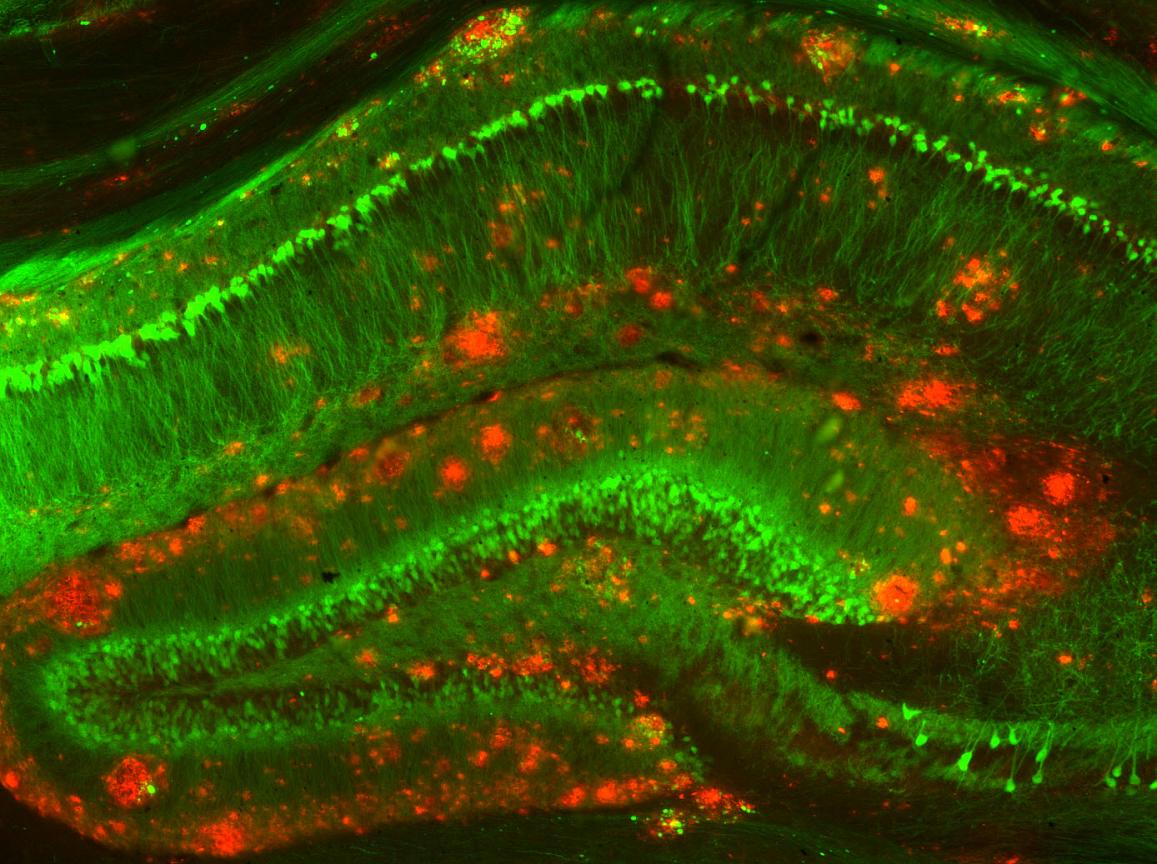Brain cholesterol associated with increased risk of Alzheimer's disease
The results represent another step towards a possible treatment for Alzheimer's disease
Researchers have shown how cholesterol - a molecule normally linked with cardiovascular diseases - may also play an important role in the onset and progression of Alzheimer's disease.

In a mouse model of Alzheimer’s disease, amyloid beta clusters (red) build up among neurons (green) in a memory-related area of the brain. Credit: NIH Image Gallery via Flickr
The international team was led by the University of Cambridge and featured Professor Chris Dobson, Master of St John's, and Tuomas Knowles, College Lecturer in Nanoscience at St John's. The researchers found that in the brain, cholesterol acts as a catalyst which triggers the formation of the toxic clusters of the amyloid-beta protein, which is a central player in the development of Alzheimer's disease.
The results, published in the journal Nature Chemistry, represent another step towards a possible treatment for Alzheimer's disease, which affects millions worldwide. The study's identification of a new pathway in the brain where amyloid-beta sticks together, or aggregates, could represent a new target for potential therapeutics.
Banner photo credit: Jesse Orrico on Unsplash.
Published: 22/05/18